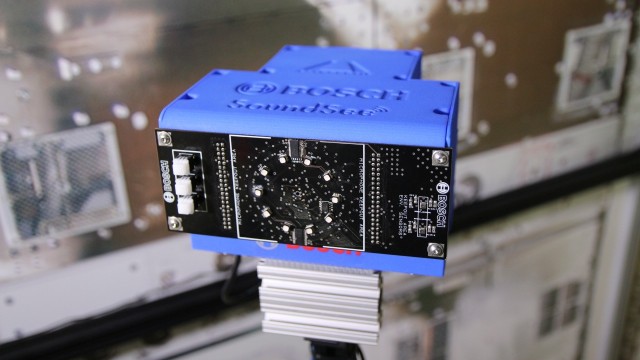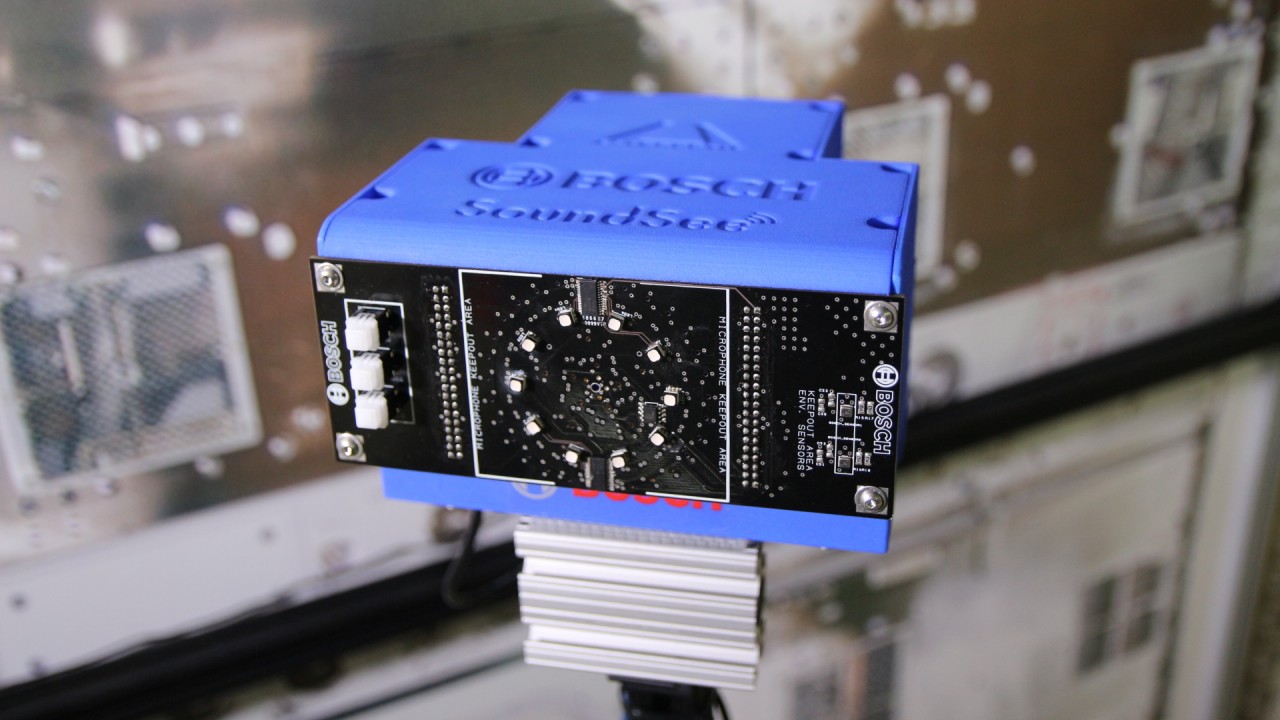Pittsburgh, USA – Bosch in North America and Astrobotic Technology Inc. today announced a research partnership to send experimental sensor technology to the International Space Station (ISS) as early as May 2019. Bosch’s SoundSee technology is a deep audio analytics capability that uses a custom array of microphones and machine learning to analyze information contained in emitted noises. SoundSee’s analytics will investigate whether audio data from equipment could be learned and understood using advanced software, such that it could be used to improve the operations of the ISS.
Having established a regional presence in 1906 in North America, the Bosch Group employs 34,700 associates in more than 100 locations, as of December 31, 2020. According to preliminary figures, Bosch generated consolidated sales of $13.1 billion in the U.S., Canada and Mexico. For more information, visit www.bosch.us, www.bosch.ca and www.bosch.com.mx.
The Bosch Group is a leading global supplier of technology and services. It employs roughly 394,500 associates worldwide (as of December 31, 2020). According to preliminary figures, the company generated sales of $87.1 billion in 2020. Its operations are divided into four business sectors: Mobility Solutions, Industrial Technology, Consumer Goods, and Energy and Building Technology. As a leading IoT provider, Bosch offers innovative solutions for smart homes, Industry 4.0, and connected mobility. Bosch is pursuing a vision of mobility that is sustainable, safe, and exciting. It uses its expertise in sensor technology, software, and services, as well as its own IoT cloud, to offer its customers connected, cross-domain solutions from a single source. The Bosch Group’s strategic objective is to facilitate connected living with products and solutions that either contain artificial intelligence (AI) or have been developed or manufactured with its help. Bosch improves quality of life worldwide with products and services that are innovative and spark enthusiasm. In short, Bosch creates technology that is “Invented for life.” The Bosch Group comprises Robert Bosch GmbH and its roughly 440 subsidiary and regional companies in 60 countries. Including sales and service partners, Bosch’s global manufacturing, engineering, and sales network covers nearly every country in the world. The basis for the company’s future growth is its innovative strength. At 126 locations across the globe, Bosch employs some 73,000 associates in research and development, as well as roughly 30,000 software engineers.
Additional information is available online at www.bosch.us, www.iot.bosch.com, https://us.bosch-press.com, https://twitter.com/BoschPress
Exchange rate: 1 EUR = 1.2171





